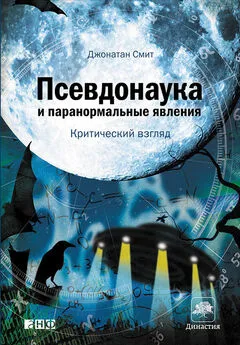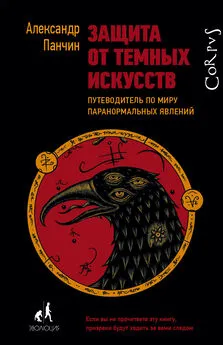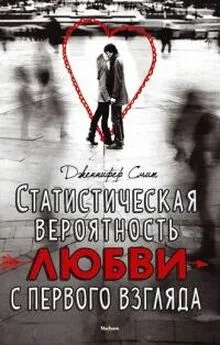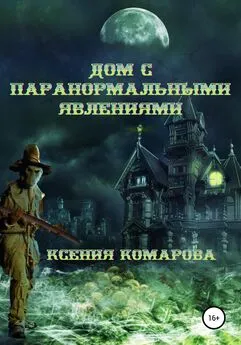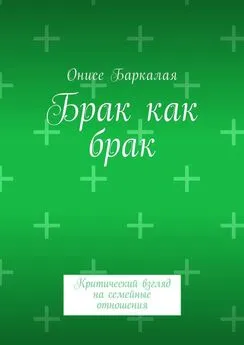Джонатан Смит - Псевдонаука и паранормальные явления: Критический взгляд
- Название:Псевдонаука и паранормальные явления: Критический взгляд
- Автор:
- Жанр:
- Издательство:Литагент Альпина
- Год:2016
- Город:Москва
- ISBN:978-5-9614-4292-2
- Рейтинг:
- Избранное:Добавить в избранное
-
Отзывы:
-
Ваша оценка:
Джонатан Смит - Псевдонаука и паранормальные явления: Критический взгляд краткое содержание
Псевдонаука и паранормальные явления: Критический взгляд - читать онлайн бесплатно ознакомительный отрывок
Интервал:
Закладка:
Johnson, С. K. (2007). Panic attacks may raise risk of heart failure, stroke in women. Oakland Tribune, Oct 2, 2007. Retrieved April 4, 2009 from: findarticles.com/p/articles/mi_qn4176/is_20071002/ai_n21021006/
Lindeman, M., & Aarnio, K. (2007). Superstitious, magical, and paranormal beliefs: An integrative model. Journal of Research in Personality, 41, 731–744.
Mueller, J. (2007). Correlations or causation. Retrieved August 2, 2007 from: jonathan.mueller.faculty.noctrl.edu/100/correlation_or_causation.htm
Nowak, R. M., & Walker, E. P. (2005). Walker's carnivores of the world. Baltimore: Johns Hopkins University Press.
Park, R. L. (2008). Two meanings of 'faith' confuse even scientists. Skeptical Inquirer, 32, 14.
Peer trainer. (2007). New study sponsored by General Mills says that eating breakfast makes girls thinner. Retrieved August 2, 2007 from: www.peertrainer.com/LoungeCommunityThread.aspx?ForumID=l&ThreadID=3118
Radin, D. (1997). The conscious universe – the scientific truth of psychic phenomena. New York: HarperCollins.
Radin, D. E. (2006). Entangled minds: Extrasensory experiences in a quantum reality. New York: Simon & Schuster.
Randi, J. (1982). The truth about Uri Geller. Buffalo, NY: Prometheus Books.
Ryle, G. (1949). The concept of mind. Chicago: University of Chicago Press.
Schwartz, G. (2004). Feedback and systemic memory: Implications for survival. Survival of Bodily Death: An Esalen Invitational Conference, May 2–7, 2004. Retrieved November 26, 2007 from: www.esalenctr.org/display/confpage.cfm?confid=19&pageid=149&pgtype=l
Schwartz, G. E. R., & Russek, L. G. S. (1999). The living energy universe. Charlottesville, VA: Hampton Roads.
Science Daily. (2007). Surgeons with video game skill appear to perform better in simulated surgery skills course. Retrieved August 2, 2007 from: www.sciencedaily.com/releases/2007/02/070220012341.htm
Sokal, A. D. (1996). Transgressing the boundaries: Towards a transformative hermeneutics of quantum gravity. Social Text, 46/47, 217–252. Retrieved April 1, 2008 from: www.physics.nyu.edu/faculty/sokal/transgress_v2/transgress_v2_singlefile.html
Springen, K. (2007). Newsweek online. Retrieved March 28, 2008 from: www.newsweek.com/id/41945
Tanner, L. (2006). Sexual lyrics prompt teens to have sex. Associated Press, August 6, 2006. Retrieved August 2, 2007 from: www.sfgate.com/cgi-bin/article.cgi?f=/n/a/2006/08/06/national/a215010D94.DTL
Townes, С. H. (2005). Statement by Charles Hard Townes at the Templeton Prize News Conference, March 9. Retrieved February 22, 2008 from: www.templeton.org/newsroom/press_releases/archive/050309townes.html
Unfacts (2000). Book review: Living energy universe. Retrieved November 27, 2007 from: unfacts.org/archive/psychics/leureview.html
Yewchuck, B. (2008). The Star Trek Techno-Babble generator. Retrieved March 28, 2009 from: www.robotplanet.dk/humor/startrek_babble_generator.html
Глава 5
Bassi, Agostino (2008). In Encyclopxdia Britannica. Retrieved January 17, 2008, from: www.britannica.com/eb/article-9013676
Bausell, R. B. (2007). Snake oil science: The truth about complementary and alternative medicine. Oxford: Oxford University Press.
Black, J. G. (1996). Microbiology. Principles and applications (3rd ed.). Upper Saddle River, NJ: Prentice Hall.
Blackmore, S., & Seebold, M. (2001). The effect of horoscopes on women's relationships. Correlation, 19 (2), 17–32.
Carlson, S. (1985). A double-blind test of astrology. Nature, 318, 419–425.
Crowe, R. A. (1990). Astrology and the scientific method. Psychological Reports, 67, 163–191.
Culver, R. В., & Ianna, P. A. (1984). The Gemini syndrome: A scientific evaluation of astrology. Buffalo: Prometheus Books.
Dean, G. (2002). Is the Mars effect a social effect? A re-analysis of the Gauquelin data suggests that hitherto baffling planetary effects may be simple social effects in disguise. Skeptical Inquirer, 26, 33–38. May, 2002 Retrieved December 15, 2007 from: findarticles.com/p/articles/mi_m2843/is_3_26/ai_85932618/pg_2
Dean, G., Mather, A., & Kelly, I. W. (1996). Astrology. In G. Stein (Ed.), The Encyclopedia of the Paranormal (pp. 47–99). New York: Prometheus.
Eysenck, H., & Nias, D. (1982). Astrology: Science or superstition? New York: St. Martin's Press.
Forlano, G., & Ehrlich, V. (1941). Month and season of birth in relation to intelligence, introversion-extroversion, and inferiority feelings. Journal of Education Research, 32, 1–2.
Gauquelin, M. (1974). Cosmic influences on human behavior. London: Garnstone Press.
Hartshorne, C, & Weiss, P. (Eds.). (1932). Collected papers of Charles Sanders Peirce, Volumes I and II, Principles of philosophy and elements of logic. Cambridge, MA: Belknap Press.
Hines, T. (2003). Pseudoscience and the paranormal (2nd ed.). Amherst, NY: Prometheus Press.
Irving, K. (2003). The Gauquelin planetary effects. Planetos: An online journal. Retrieved December 27, 2007 from: www.planetos.info/index.html
Irwin, H. J., & Watt, C. A. (2007). An introduction to parapsychology (5th ed.). Jefferson, NC: McFarland.
Jerome, L. E. (1977). Astrology disproved. Amherst, NY: Prometheus Books.
Kelly, I. W. (1998). Why astrology doesn't work. Psychological Reports, 82, 527–546.
Kuhn, T. S. (1970). The structure of scientific revolutions. Chicago: University of Chicago Press.
Metchnikoff, E., & Berger, D. (1939). The founders of modern medicine: Pasteur, Koch, Lister. New York: Walden.
Nienhuys, J. W. (1997). The Mars effect in retrospect. Skeptical Inquirer, 21, 24–29. Retrieved April 1, 2008 from: www.skepticfiles.org/skeptic/marsef18.htm
Popper, K. (1959). The logic of scientific discovery. New York: Basic Books.
Schick, T., & Vaughn, L. (2005). How to think about weird things: Critical thinking for a new age (4th ed.). New York: McGraw-Hill.
Vaughn, L. (2008). The power of critical thinking: Effective reasoning about ordinary and extraordinary claims (2 ed.). New York: Oxford University Press.
Глава 6
Anderson, D. (1996). Pi-search page. Retrieved April 1, 2008 from: www.angio.net/pi/piquery
Bausell, R. B. (2007). Snake oil science: The truth about complementary and alternative medicine. Oxford: Oxford University Press.
Blackmore, S., & Troscianko, T. (1985). Belief in the paranormal: Probability judgments, illusory control, and the «chance baseline shift.» British Journal of Psychology, 76, 459–468. Retrieved April 1, 2008 from: www.susanblackmore.co.uk/Articles/BJP%201985.htm
Bollobа´s, B. (Ed.). (1986). Littlewood's miscellany. Cambridge: Cambridge University Press.
Bonferroni, С. E. (1935). Il calcolo delle assicurazioni su gruppi di teste. In Studi in Onore del Professore Salvatore Ortu Carboni. Rome, Italy, pp. 13–60.
Chopra, D. (2003). The spontaneous fulfillment of desire. New York: Harmony/Random House.
Elmo, Gum, Heather, Holly, Mistletoe, & Rowan. (2002). Notes towards the complete works of Shakespeare. Retrieved August 3, 2007 from: www.vivaria.net/experiments/notes/publication/NOTES_EN.pdf
Frazier, K. (Ed.). (2009). The new UFO interest: Scientific appraisals. [Special issue]. Skeptical Inquirer, 33 (1), January/February.
Gauquelin, M. (1974). Cosmic influences on human behavior. London: Garnstone Press.
Gilovich, T. (1991). How we know what isn't so. New York: The Free Press.
Hines, T. (2003). Pseudoscience and the paranormal. Amherst, NY: Prometheus Books.
Holt, J. (2004). Throw away that astrological chart. New York Times, April 29, D10.
Kittel, C., & Kroemer, H. (1980). Thermal physics (2nd ed.). New York: W. H. Freeman.
Leavy, J. (1992). Our spooky presidential coincidences contest. Skeptical Inquirer, 16, 316–320.
McGaha, J. (2009). The trained observer of unusual things in the sky (UFOs?). Skeptical Inquirer, 33 (1), 55–56.
McKenna, F. P., & Albery, I. P. (2001). Does unrealistic optimism change following a negative experience? Journal of Applied Social Psychology, 31, 1146–1157.
Morewedge, С. K., & Norton, M. I. (2009). When dreaming is believing: The (motivated) interpretation of dreams. Journal of Personality and Social Psychology, 96, 249–264.
Murray, H. A., & Wheeler, D. R. (1936). A note on the possible clairvoyance of dreams. The Journal of Psychology, 3, 309–313.
Myers, D. G. (2004). Intuition: Its powers and perils. New Haven, CT: Yale University Press.
Paulos, J. P. (2001). Innumeracy: Mathematical illiteracy and its consequences. New York: Hill and Wang.
Redfield, J. (1993). The Celestine Prophecy. New York: Warner Books.
Sanbonmatsu, D. M., Posavac, S. S., & Stasney, R. (1997). The subjective beliefs underlying probability overestimation. Journal of Experimental Social Psychology, 33, 276–295.
Schick, T., & Vaughn, L. (2005). How to think about weird things: Critical thinking for a new age. New York: McGraw-Hill.
Tversky, A., & Kahneman, D. (1973). Availability: A heuristic for judging frequency and probability. Cognitive Psychology, 5, 207–232. www.veegle.com. Substantiated true facts – the odds. Retrieved April 30,2008 from: www.veegle.com/odds.htm?submit2=The+Real+Odds
Weinstein, N. D. (1980). Unrealistic optimism about future life events. Journal of personality and social psychology, 39, 806–820.
Weinstein, N. D., & Klein, W. M. (1996). Unrealistic optimism: Present and future. Journal of Social and Clinical Psychology, 15, 1–8.
Глава 7
Baker, R. A. (1990). They call it hypnosis. Buffalo, NY: Prometheus Books.
Bányai, É, & Hilgard, E. (1976). A comparison of active-alert hypnotic induction with traditional relaxation induction. Journal of Abnormal Psychology, 85 (2), 218–224.
Beloff, R. (1999). Bent on Uri Geller. The Jerusalem Post Magazine, December 6, 1999. Retrieved 27 November, 2007 from: www.uri-geller.com/jpostfriday.htm
Browne, S. (2005). Secrets & mysteries of the world. Carlesbad, CA: Hay House.
Browne, S. (2006). Exploring the levels of creation. Carlesbad, CA: Hay House.
Browne, S., & Harrison L. (2000). Life on the other side: A psychic's tour of the afterlife. New York: New American Library.
Carroll, R. T. (2003). The skeptic's dictionary. Hoboken, NJ: Wiley.
Carroll, R. T. (2006). Mass media funk. Retrieved April 4, 2009 from: skepdic.com/refuge/funk44.html
Carroll, R. T. (2007a). Cognitive dissonance. In The skeptic's dictionary. Retrieved April 1, 2008 from: skepdic.com/cognitivedissonance.html
Carroll, R. T. (2007b). Uri Geller. The skeptic's dictionary. Retrieved April 1, 2008 from: skepdic.com/geller.html
Cherry, E. C. (1953). Some experiments on the recognition of speech, with one and with two ears. Journal of the Acoustic Society of America, 25, 975–979.
Crick, R. (1984). Function of the thalamic reticular complex: The searchlight hypothesis. Proceedings of the National Academy of Sciences USA, 81, 4586–4590.
Dickson, D. H., & Kelly, I. W. (1985). «The Barnum Effect» in personality assessment: A review of the literature. Psychological Reports, 57, 367–382.
Читать дальшеИнтервал:
Закладка:
